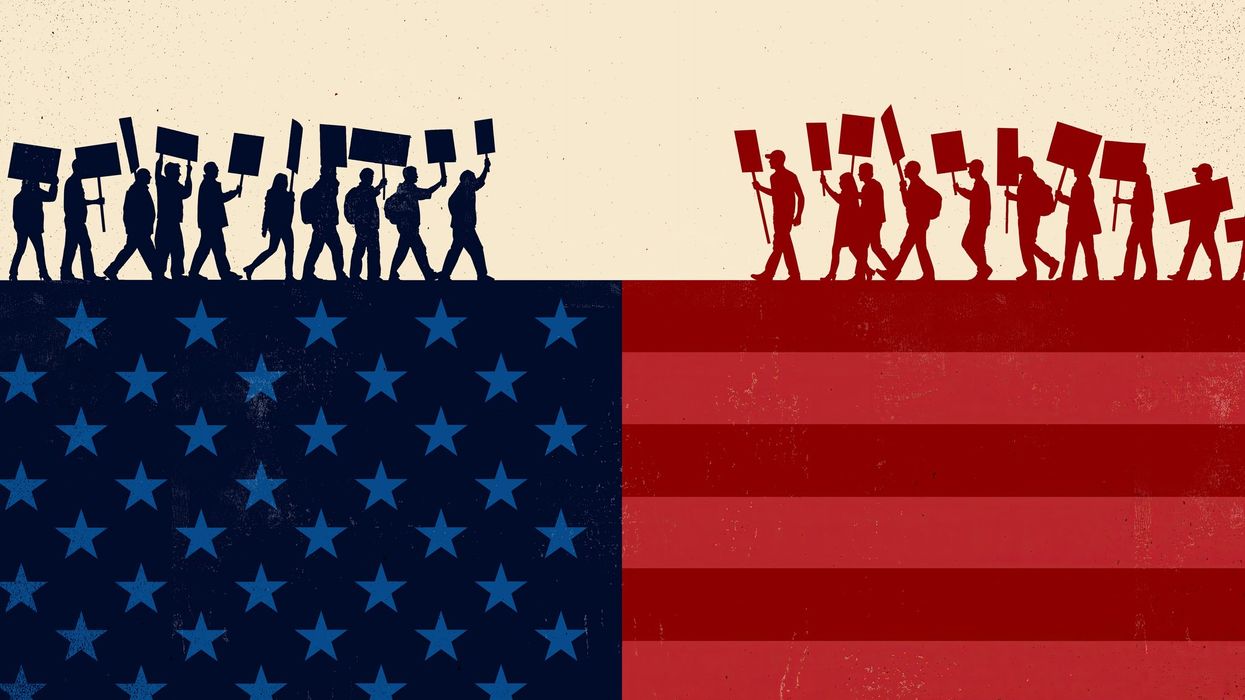Based on popular demand, the American Schism series will renew in 2025 with a look at science-based public policy caught in the crossfires of today’s culture wars.
Readers often send me comments on how this series effectively sheds light on our contemporary political divisions through careful examination and analysis of our own American history, since so many of our present issues are derivative of conflicts long brewing in our past. As I wrote last year on these pages, history can act as a salve for our present-day wounds if we apply it.
As the new year begins, one of the most salient features of our contemporary schism is the one at the intersection of science and policy. With Robert Kennedy Jr. incoming as head of Health and Human Services (pending Senate confirmation), speculation abounds regarding his plans: will he proceed with the halting of vaccine mandates and removing drinking water fluoride, despite rock-solid evidence of those same policies’ salutary results? Or, by contrast, will Kennedy take on the food lobby by advocating stricter regulations on food additives that pose potential health risks, certainly worthy of consideration?
As Kennedy begins his campaign tour among US Senators, despite his previous comments, both Fox News and CNN report that the status quo looks safe, at least as far as the polio vaccine is concerned. Nonetheless, many questions remain, given Donald Trump’s previously demonstrated antipathy toward scientific expertise. So, considering science and public policy, what lessons can we learn from our history?
One hundred years ago, John Scopes was accused of violating a Tennessee state law that prohibited teaching the theory of evolution in schools. The 1925 Scopes trial pitted the great defense attorney of the time, Clarence Darrow, against the three-time presidential candidate Williams Jennings Bryan, labeled “the Great Commoner.” A present-day version of this trial seems entirely plausible and even likely in the next few years when, predictably, a doctor provides an abortion in a state that has outlawed such.
In 1925, nearly 160 reporters covered the trial, thereby providing ample records of the events. During the Scopes trial, all copies of the biology textbook in question were sold out. In an unnerving parallel, the NYT recently cited a Guttmacher Institute study indicating that “in nearly every state that has banned abortion, the number of women receiving abortions increased between 2020 and the end of 2023.”
During the Scopes trial, despite the high level of drama and conflict, the mood on the ground was reportedly jubilant and even circus-like. Vendors sold food and drinks and, for penny change, street performers photographed willing citizens with Chimpanzees. According to Keeping the Faith, a new book by award-winning historian Brenda Wineapple, everyone seemed to join in the fun: university students petitioned the legislature to “amend the law of gravity and do something about the excessive speed of light.” One of the journalists covering the proceedings, George Schuyler, interviewed a gorilla at the Bronx Zoo who expressed outrage at the appalling idea of being related to people. The primate was quoted: Nobody had ever seen us carry on, lynching each other, filling up jails, or overworking our little ones …Did you ever hear of monkeys allowing one of their race to appropriate all the trees in the jungle and then force others to pay him rent?
The similarities between 1925 and 2025 are truly remarkable, revealing the continuity in our culture wars vis-à-vis conflicts between science and religion. Just as in 1925, the city-dwelling “cultured crowd” and the rest of the country took opposite sides. During the Scopes trial, there was considerable evidence of contempt on both sides as scientists searching for truth clashed with white fundamentalists threatened by an assault on their religion. Like today, there were also aspects of the split related to race and the acute perception among Christian men of the 1920s that they were losing ground to the millions of Catholic and Jewish immigrants who had flooded the country decades prior. Further, the recent enfranchisement of women added to men’s concerns.
The underlying tension throughout the proceedings (radio broadcast to the entire nation) positioned “educated” city residents as resolute opposition to the local townspeople. In the present-day parallel, we see today’s fiercest cultural warriors emerging from nonurban parts of America that missed out on the tech boom enriching coastal cities.
But here is one crucial contrasting element: while the America of 1925 certainly had its share of violence, the political divisions around the epoch’s culture wars evinced scant animosity. Before the trial, local Tennessee businessmen put up Scopes's bail money as they didn’t want to see their kids’ teacher jailed. Not only were Darrow and Bryan friendly, but once Scopes had lost the case, Bryan volunteered to pay the associated fines.
The environment could not be more different today, where candidates at every level of government make a continual practice of weaponizing culture war disputes. The stoking of divisiveness, rage, and acrimony to win elections has become standard play in this century. In Scopes day, both sides of the debate respected each other, sharing many meals together and managing to co-exist without hatred. Perhaps that lesson can form the basis of a collective New Year’s resolution in 2025.
If only.
Seth David Radwell is the author of “American Schism: How the Two Enlightenments Hold the Secret to Healing our Nation ” and serves on the Advisory Councils at Business for America, RepresentUs, and The Grand Bargain Project. This is the first entry in a 10-part series on the American Schism in 2025.




















Marco Rubio is the only adult left in the room